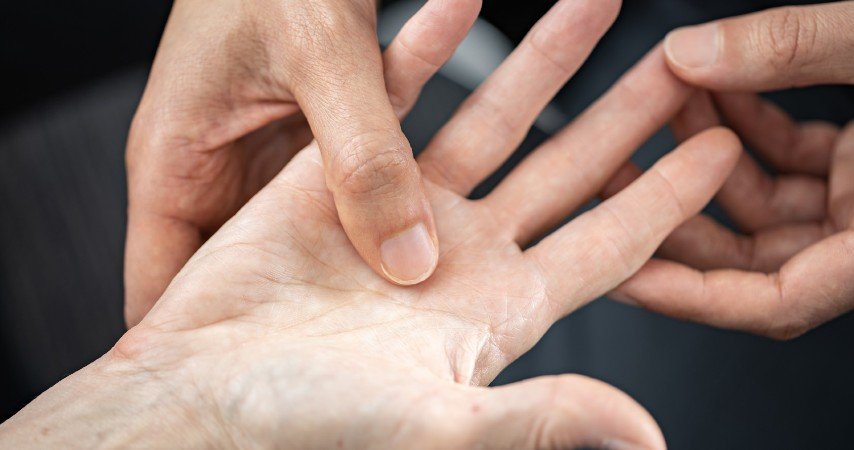
Trigger finger is a condition involving pain or locking on movement of one of the fingers. Under normal conditions, the flexor tendons that bend the fingers into the palm run within a tendon sheath that holds them close to the bones. Trigger finger develops when these tendons develop a thickening or nodule that decreases the space in the tendon sheath and rub or become caught on part of the tendon sheath.
This can lead to symptoms of pain on moving the affected finger and in severe cases can cause clicking or locking of the finger leading to an inability to straighten the finger.
Trigger finger can usually be diagnosed on clinical assessment, however in some cases an ultrasound may help in locating the site of the thickening or nodule in the tendon.
Treatment of trigger finger depends on the duration and severity of symptoms. In mild cases it may be managed with a steroid injection or splint. However, in many cases surgery is indicated to help the tendon glide more freely. This involves releasing part of the tendon sheath at the area of tightness through a small incision in the palm.
A consultation with your plastic surgeon will enable personalisation of the procedure and care to your unique situation.
Surgery is usually performed as day surgery under either local anaesthetic and sedation or local anaesthetic alone. If you are having sedation, you will need to fast on the day of surgery, and organise a support person to take you home and be around to help in the first few days after surgery.
After surgery, your hand will be wrapped in a bandage for comfort. After a few days, you will be able to remove this and start to move your fingers and use your hand for light activities.
A post-operative appointment will be organised for you to see your plastic surgeon 1-2 weeks after surgery to check your wounds, remove sutures and provide advice to care for your hand as you recover. Generally you will not be able to drive for 2 weeks after surgery and will need between 2-4 weeks off work depending on your type of work (manual work vs office based work).
All operations have risks, though major complications are rare after trigger finger surgery. There is a small risk of concerns that may delay healing and require a little extra care (eg minor bleeding, infection, or over active or sensitive scars). Very rarely there is a risk of injury to the digital nerves that provide sensation to the finger and lie next to the tendon sheath. Very rarely there is a risk that not enough of the tendon sheath is released which may lead to ongoing symptoms of pain and locking of the finger.
These risks may vary depending on your specific situation and will be discussed with you at your consultation. Please feel reassured that your plastic surgeon will only recommend surgery if they feel that the benefit of the procedure substantially outweigh the risks.
If you have trigger finger surgery, the majority of the cost is rebatable through Medicare and standard private health insurance. This does require a referral from your family doctor.
After your consultation, a detailed quote will be provided to you including the surgeon fee, anaesthetic fee and hospital fee.
You can use this form to request a call back.
Please be aware that all surgical procedures require a consultation with our plastic surgeons to allow a thorough assessment and discussion of your specific needs.








Plastic Surgery Central
235 Greenhill Rd
Dulwich SA 5065